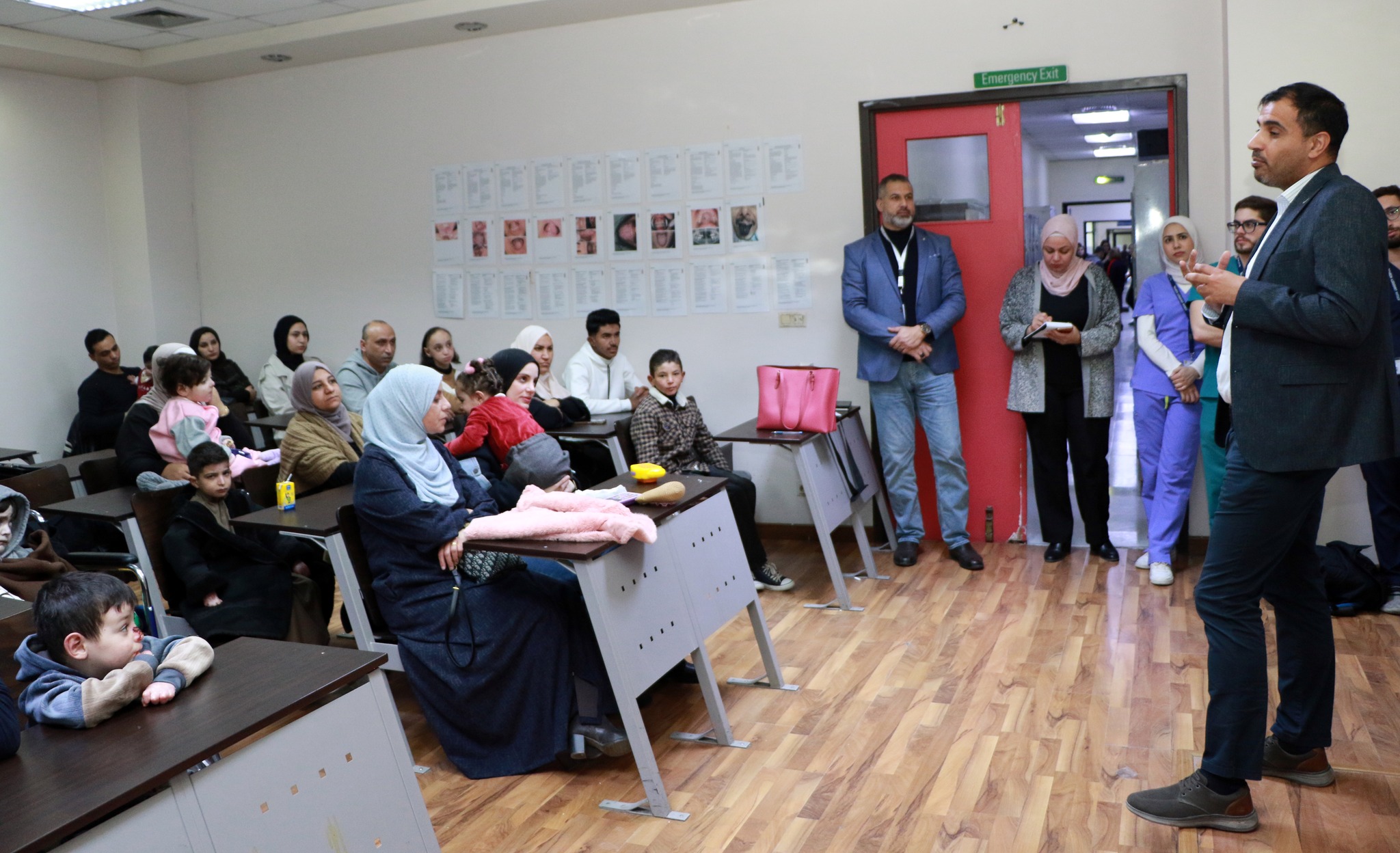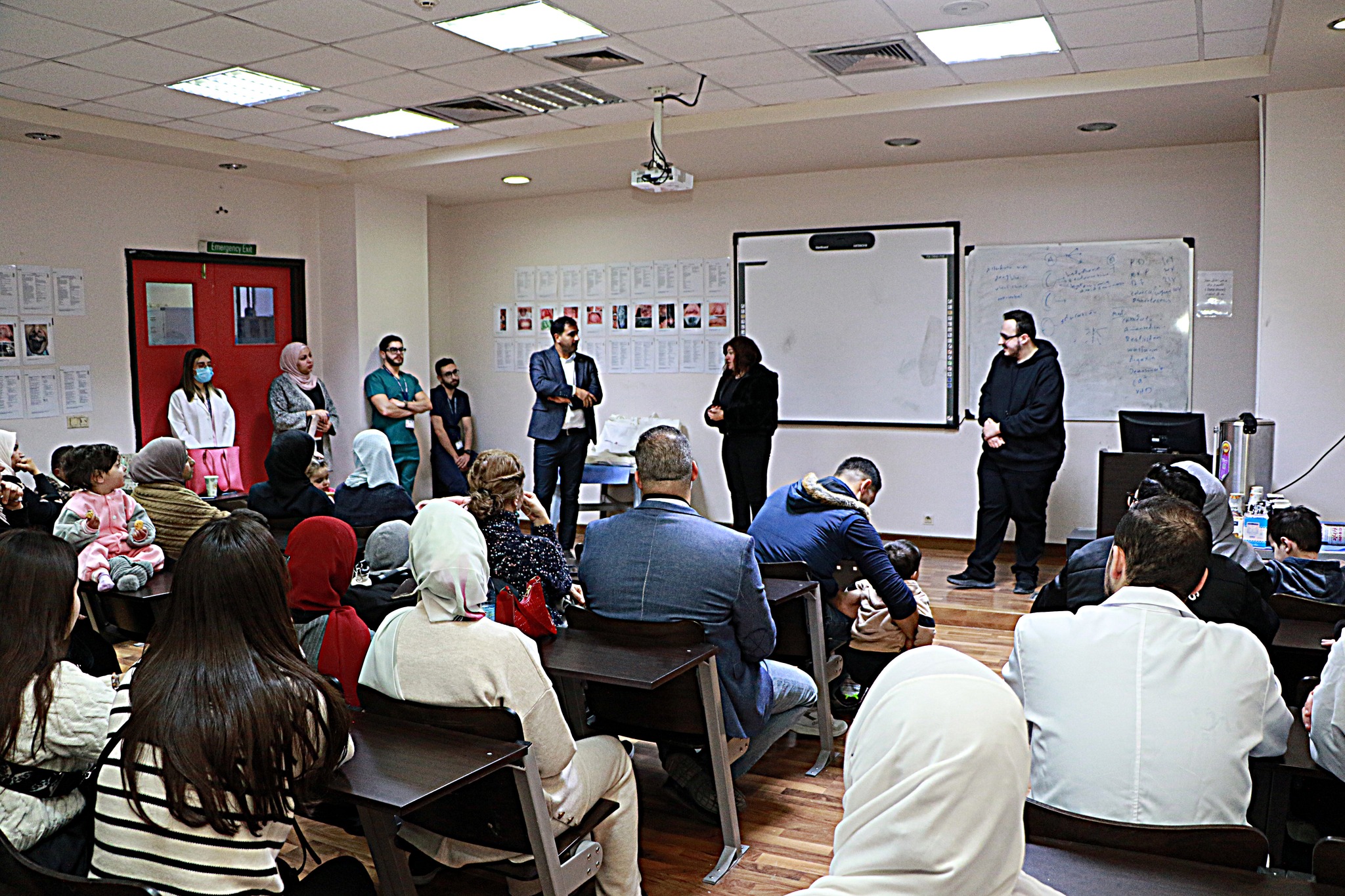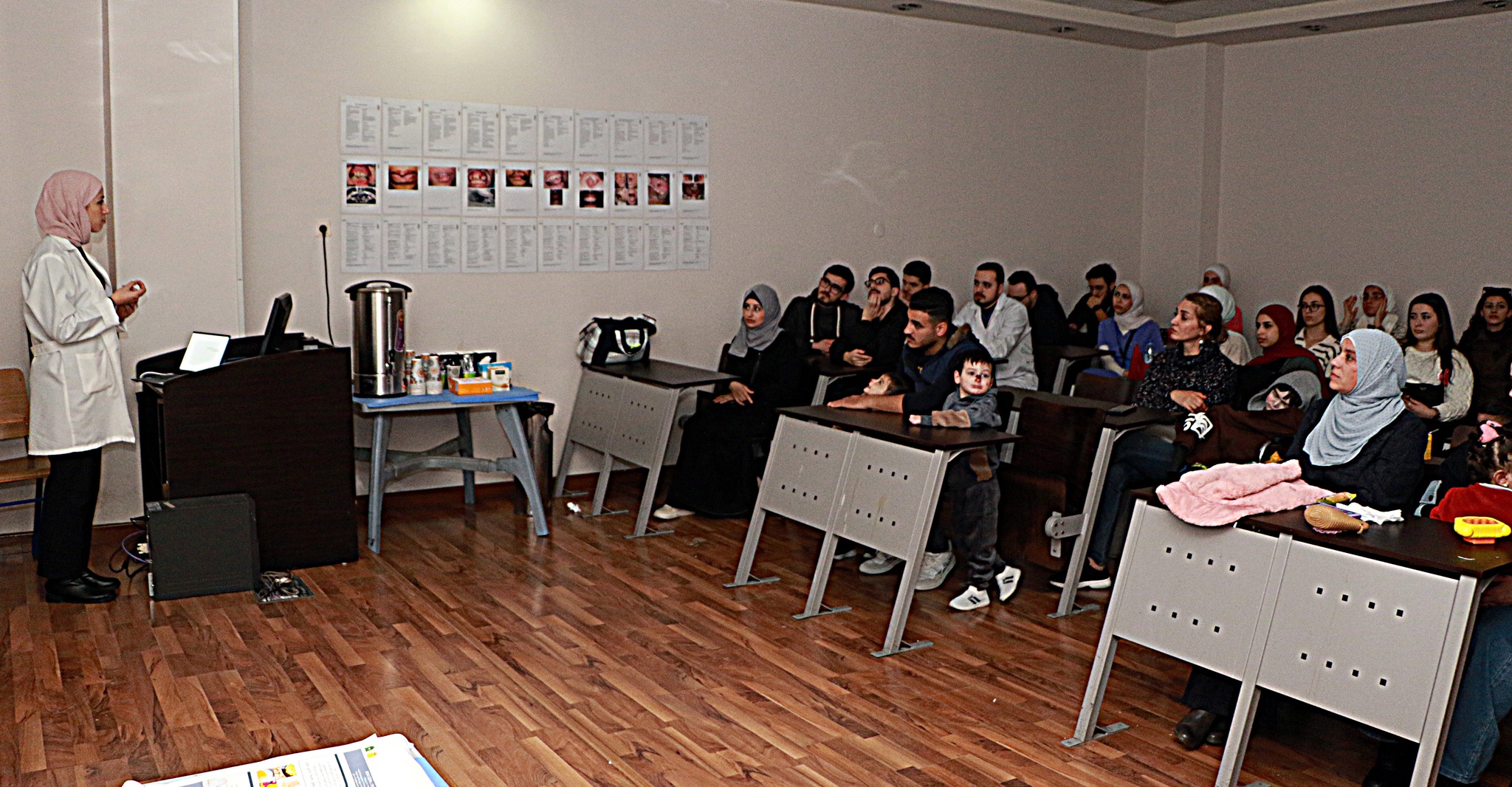The Dentistry Department at the Jordan University Hospital organized an awareness day on Thursday for patients with Epidermolysis Bullosa (EB), under the supervision of Professor Dr. Yazan Hassouneh, a consultant in oral and dental medicine for individuals with special needs. The event was held in collaboration with the Butterfly Wings Foundation and the DEBRA organization, aiming to educate patients and their families about the importance of oral health and dental care for this group.
Dr. Hassouneh explained that Epidermolysis Bullosa, also known as "Butterfly Disease," is a non-contagious genetic disorder characterized by the formation of blisters on the skin and inside the mouth. This condition significantly impacts oral and dental health, leading to painful ulcers in the mouth, which in turn cause difficulties in eating, swallowing, and maintaining oral hygiene. He emphasized the importance of oral and dental care from an early age to prevent infections and pain in the teeth and gums.
Dr. Hassouneh further clarified that there is currently no cure for this disease, but palliative measures can help manage the condition and prevent its progression. He highlighted that several ongoing scientific studies and research efforts worldwide are working toward finding effective treatments for EB, expressing hope that a cure will be available soon to improve the quality of life for affected patients. He also stressed the importance of providing full support to the families of these patients and fostering the idea of having institutions that assist them in their children’s treatment journey.
Dr. Hassouneh pointed out that the Special Needs Dentistry Clinic at the hospital plays a crucial role in managing patients' conditions and developing treatment plans using specialized tools suited to their health needs while taking necessary precautions to prevent blisters and injuries.
The event also included a scientific workshop for resident doctors and students on how to diagnose and manage oral health issues in EB patients. Additionally, an interactive lecture was held for patients and their families on the importance of maintaining good oral hygiene to prevent cavities, thereby reducing the need for dental visits and minimizing the discomfort caused by mouth ulcers. The lecture provided practical advice on selecting the right toothbrush and toothpaste, keeping the mouth hydrated, drinking plenty of fluids, maintaining a nutritious diet, avoiding hard and rough foods, and focusing on nutritional value. Dermatologists also shared recommendations on wound care, preventing ulcers and infections, and the necessity of regular follow-ups with dermatologists. Furthermore, oral examinations were conducted for patients, and appropriate treatment recommendations were provided.



